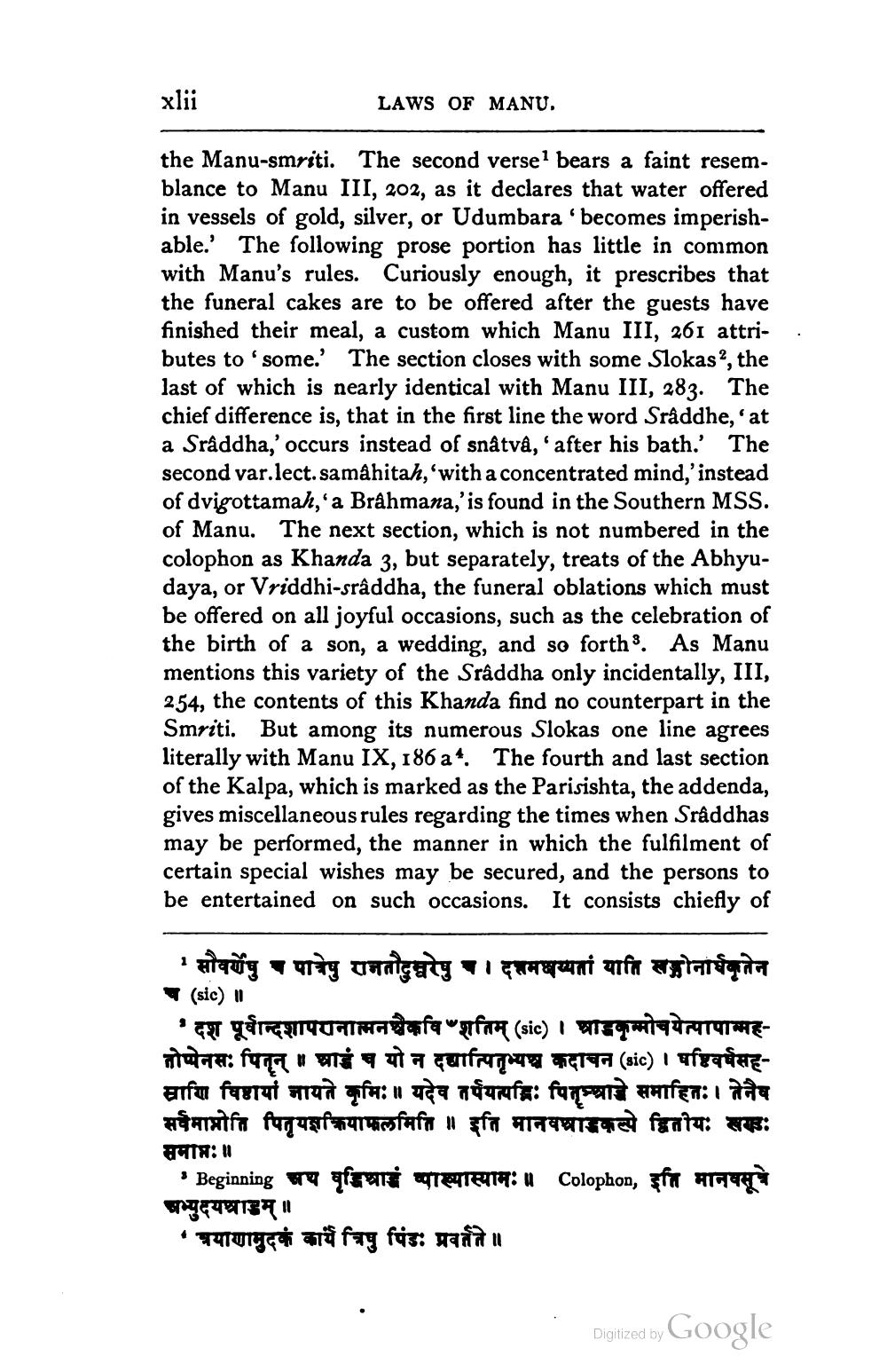________________
xlii
the Manu-smriti. The second verse1 bears a faint resemblance to Manu III, 202, as it declares that water offered in vessels of gold, silver, or Udumbara 'becomes imperishable.' The following prose portion has little in common with Manu's rules. Curiously enough, it prescribes that the funeral cakes are to be offered after the guests have finished their meal, a custom which Manu III, 261 attributes to 'some.' The section closes with some Slokas2, the last of which is nearly identical with Manu III, 283. The chief difference is, that in the first line the word Srâddhe,' at a Srâddha,' occurs instead of snâtvâ,' after his bath.' The second var.lect. samâhitah, 'with a concentrated mind,' instead of dvigottamak,' a Brahmana,' is found in the Southern MSS. of Manu. The next section, which is not numbered in the colophon as Khanda 3, but separately, treats of the Abhyudaya, or Vriddhi-srâddha, the funeral oblations which must be offered on all joyful occasions, such as the celebration of the birth of a son, a wedding, and so forth. As Manu mentions this variety of the Srâddha only incidentally, III, 254, the contents of this Khanda find no counterpart in the Smriti. But among its numerous Slokas one line agrees literally with Manu IX, 186 a. The fourth and last section of the Kalpa, which is marked as the Parisishta, the addenda, gives miscellaneous rules regarding the times when Srâddhas may be performed, the manner in which the fulfilment of certain special wishes may be secured, and the persons to be entertained on such occasions. It consists chiefly of
1
सौवर्णेषु च पात्रेषु राजतौदुश्वरेषु च । दत्तमचय्यतां याति खङ्गोनार्धकृतेन (sic) |
3
दश पूर्वान्दशापद्यनात्मनश्चैकवि "शतिम् (sic) । श्राद्धकृम्मोचयेत्पापान्महतोप्पेनसः पितॄन् ॥ श्राद्धं च यो न दद्यात्पितृभ्यश्च कदाचन (sic) । षष्टिवर्षसहanfu faxıai anaà qfa: u ada ndaufz: farsand amufen: 1 Àä सर्वमाप्नोति पितृयज्ञक्रियाफलमिति ॥ इति मानववाद्धकल्पे द्वितीयः खः
LAWS OF MANU.
समाप्तः ॥
* Beginning अथ वृद्धिश्राद्धं व्याख्यास्यामः ॥ Colophon, इति मानवसूत्रे अभ्युदयत्राडम् ॥
त्रयाणामुदकं कार्ये त्रिषु पिंडः प्रवर्तते ॥
4
Digitized by
Google




